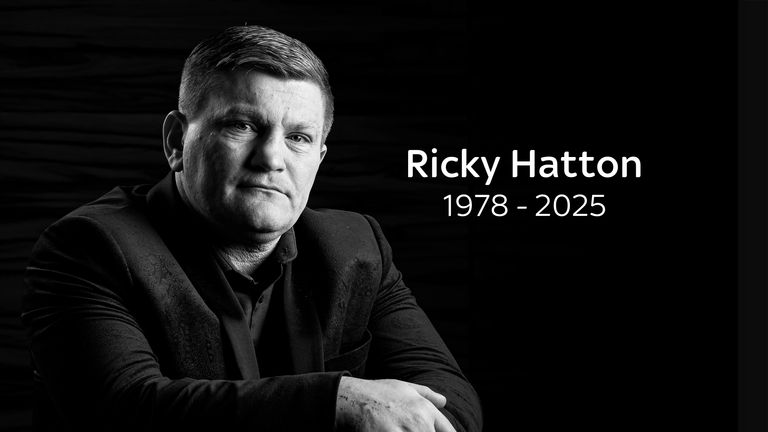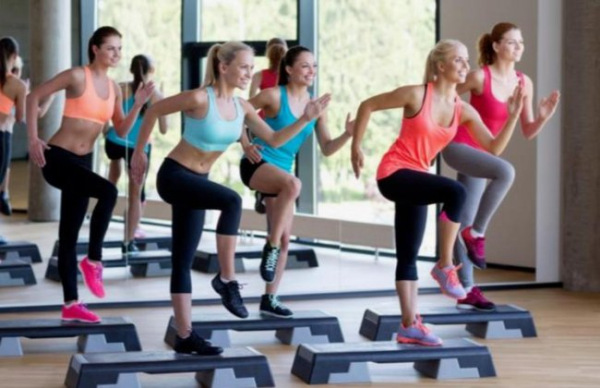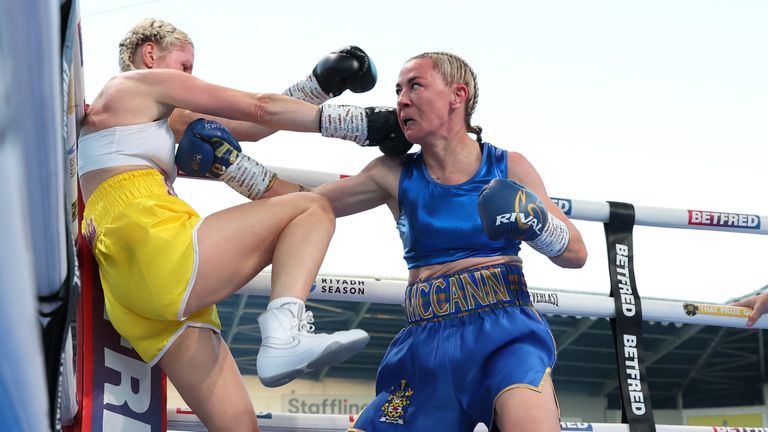
Marissa Callaghan can’t remember having any sporting role models while she was growing up in west Belfast.
Northern Ireland didn’t even establish its own senior women’s football team until 2004, when a group of players decided to pay their own way to represent their country in the Algarve Cup.
The step up to competitive action was hugely challenging. Attempting to qualify for UEFA Euro 2009, the Northern Irish claimed a single point from eight games in a group won easily by England.
However, next July, Callaghan will lead out the current NI side in their first appearance at a major finals, with the Lionesses among their opponents. She has become precisely the sort of inspirational, relatable football figure that she sorely lacked in her youth.
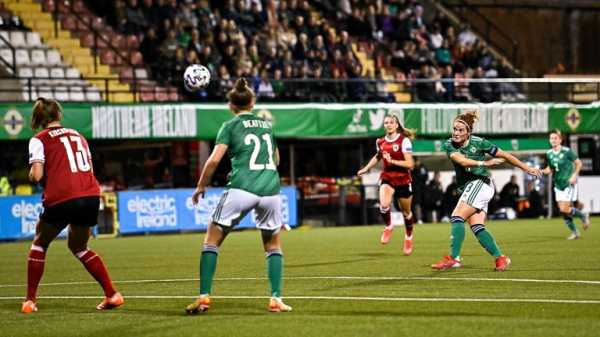
Image: Callaghan takes a shot on goal in October's 2-2 draw against Austria at Seaview in World Cup qualifying – the return tie is in April, and the teams will then meet again at the Euros in July
Such a status could be slightly overwhelming, but the combative, flame-haired midfielder – whose goal in April’s play-off second leg against Ukraine did so much towards sealing progress to the finals – relishes the responsibility.
“I take it very seriously,” she says. “When I was a kid, we didn’t have anyone to look up to in terms of female players.
“Yes, you have your family and friends, but away from that, there was no one for us.
Also See:
“I was a shy girl growing up – I didn’t have any confidence. If you’d told me when I was 15 that one day I’d be standing here talking to Sky Sports, I would have crumbled.”
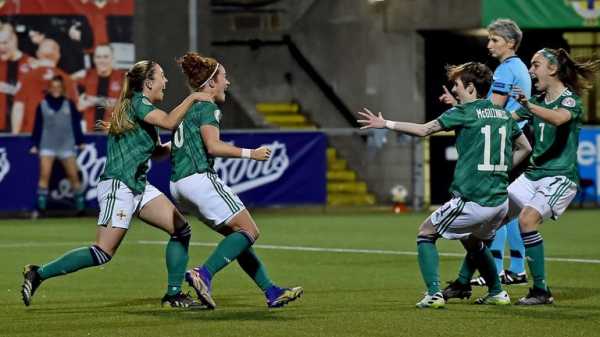
Newington Girls, the team she played for as a teenager that was later amalgamated into Cliftonville FC, taught her teamwork and tenacity. It’s no exaggeration to say that she is now a national hero, but what marks her out is her determination to help lift others up to her level.
“It’s about taking yourself out of your comfort zone and using this platform to help young boys and girls.”
Callaghan can certainly be allowed a reflective moment or two. For an interview in support of Rainbow Laces, she is back at The Waterworks, the lakeside park area next to Cliftonville’s Solitude stadium where her football story began in earnest, the place where her well-honed street skills developed into a more structured understanding of the game.
Each year, a youth worker called Marty Foyle would encourage the young Callaghan and her friends to play in a five-a-side tournament at the local Maysfield Leisure Centre. “That was the first feel I had for the competitive side of the game. Marty was actually the one who got me in touch with Newington. If it wasn’t for him, I don’t know where I’d be.”
Her ability would take her to Alabama on a football scholarship and then onto a sports coaching degree at Ulster University. Having previously played for Northern Ireland’s U15, U17 and U19 teams, she made her senior debut in 2010, the same year she took her first full-time football coaching job.
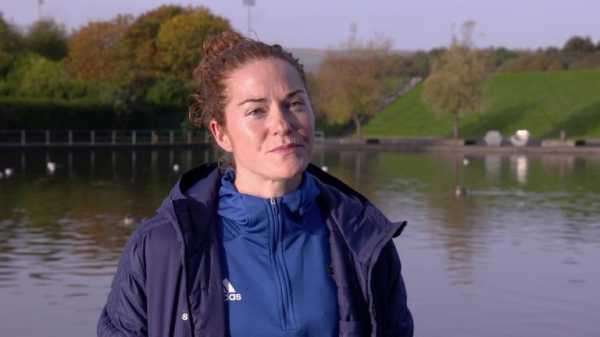
Callaghan says talented players coming through now with Northern Ireland Women have ‘massive opportunities’ compared to when she was younger
Callaghan has a strong belief that some things are just meant to be – but akin to her attacking instincts in the final third, she senses that it is also her passion for sport that has set up those scenarios. Foyle sent her down the football route, and it was also through the game that she encountered her partner Paula Reed.
“It was just by fluke. I was doing a programme session for work at the time, and she was working with Carnmoney Girls, looking after the administration side.
“It wasn’t until a few months later that we met in a local bar on Union Street and we hit it off.”

Image: Callaghan celebrates after scoring against Latvia in September's World Cup Qualifier at Windsor Park – NI Women are currently third in Group D
They have been together for nearly a decade, and are proud parents to a two-year-old boy, Quinn. Due to Callaghan’s national profile, their relationship carries some additional significance, in the wider UK context.
‘Football helped me understand my feelings’
LGBTQ+ rights in Northern Ireland have developed at a slower pace in comparison to England, Scotland and Wales, in large part due to vetoes employed by socially-conservative, unionist politicians under the power-sharing agreement in the country’s Assembly.
Equal marriage was only enacted in Northern Ireland in 2020 because of a Westminster directive, six years after being permitted in the other parts of the UK.
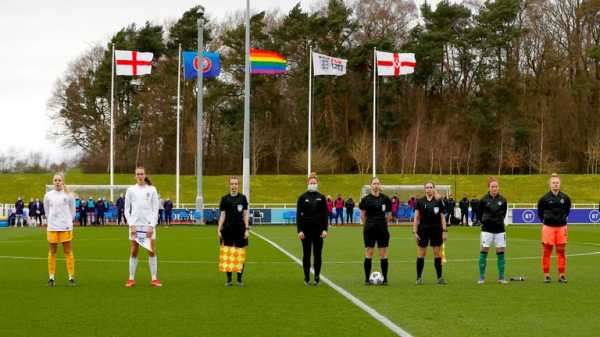
Image: The Pride flag flew at St George's Park when Northern Ireland faced England in a friendly during LGBT History Month in February
Back in 1998, a social attitudes survey undertaken by two Belfast universities suggested 58% of people in the province thought same-sex relationships were always wrong, nearly 20% higher than the equivalent finding at the time from the British Social Attitudes survey.
However, public opinion in Northern Ireland shifted considerably on this in the ensuing 15 years and by 2013, the figure had dropped from 58% to 27%.
For Callaghan, her teenage years of the late 1990s and early 2000s were a confusing time.
“There were a lot of things I didn’t really understand when I was younger,” she says.
“A girl who lived close to us was gay. As innocent as it was back then, my friend used to run away from her when she saw her in the street. These small things are what you grew up with. It was seen as bad.
“The most difficult time for me was when I was in secondary school, although I think that’s a difficult time anyway for youngsters because you have so much going on. I was lucky enough to have my football to drop back on, and any issues I had, I was able to go and forget about them on the pitch.”
Football broadened Callaghan’s friendship group and allowed her to recognise and appreciate the diversity around her, as well as giving her much-needed perspective on her own sexuality.
“It didn’t click for me until I started to play for a team, because it was then that I started to meet people who were gay and were in relationships. It was just a norm for them.
“I started to understand a lot of the thoughts and feelings that I was having, growing up. So from then on, because I was comfortable playing football, it became quite easy for me to be who I was.
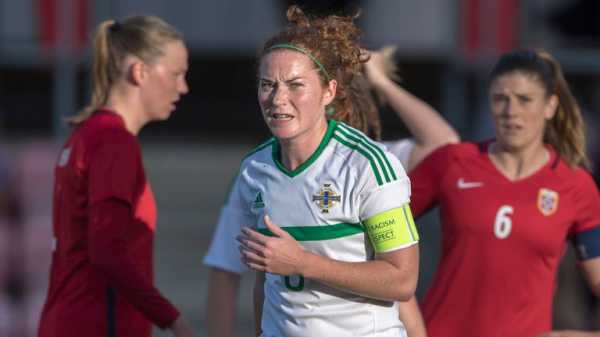
Image: Callaghan in action in a World Cup Qualifier away to Norway, who Northern Ireland will also face in Group A at Euro 2022
“However, it was still difficult in terms of that coming out process, and the idea of being proud of who you were. It was still something that people didn’t understand.
“It wasn’t until I was in my early 20s that my family started to accept it, at a time when the broader community was beginning to accept it too.”
‘Work hard, dream big’
For the next Marissa Callaghan growing up in Belfast or thereabouts, who is perhaps also LGBTQ+ and hopes to one day fall in love, it’s generally a more welcoming world.
Yet the Northern Ireland skipper knows that her visibility as an out athlete still matters. It’s why she will always, given the opportunity, choose to wear a rainbow captain’s armband when out on the pitch.
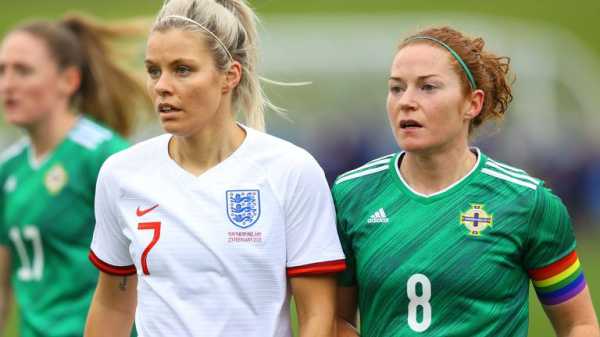
Image: Callaghan with England's Rachel Daly – the meeting between the two countries at Euro 2022 will be the last game in Group A
“It’s so important to use that platform, so young people can see the colours,” she explains. “I’ve actually used that a lot of times in local games too – I’m not the captain of my club team but I am the vice, so there are a few games that I lead as captain.
“That armband symbolises so much and for me, if one young person looks at it and feels a bit of pride in who they are, then that’s massive.”
Popularity begins at home, though. On the night of Northern Ireland’s historic win over Ukraine, Paula shared a photo of baby Quinn reaching out and touching the TV screen showing the game. The image was a symbol in itself.
“I just want him to believe that he can be whoever he wants to be – and that he’ll remember little bits of me playing too!
“At the minute, he absolutely loves football. He’s kicking a ball around the living room all the time. Sport should show kids that anything’s possible – work hard, dream big. I want to have those stories for him growing up.”
The exciting chapter on the Euros is yet to come. First, Callaghan and her fellow squad-mates who are based in Northern Ireland will go full-time, allowing them to benefit even more under the guidance of father-and-son coaching team Kenny and Dean Shiels.
Norway will be their first opponents at the finals on July 7, followed by Austria, and then the hosts. All the team’s group games will be played at St Mary’s in Southampton.
It’s a huge challenge but one that Callaghan is not fazed by. “We have so many girls of different ages – a mix of senior players and youth – and it just works. We want to do so well for Northern Ireland and for each other, for our family, friends and coaches.
“To think that we’ll be in the Euros finals next year in England, I still pinch myself thinking about it. Hopefully, we’ll inspire a lot of boys and girls to want to wear the green shirt.
“Northern Ireland may be a little country but we have massive hearts and pride in ourselves.”
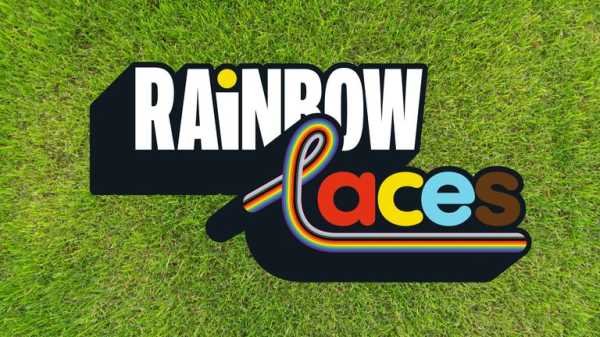
Sky Sports is a member of TeamPride which supports Stonewall’s Rainbow Laces campaign, currently receiving its annual activation from November 25 to December 12.
Your story of being LGBTQ+ or an ally could help to make sport everyone’s game – please contact us here to discuss further.
Sourse: skysports.com
